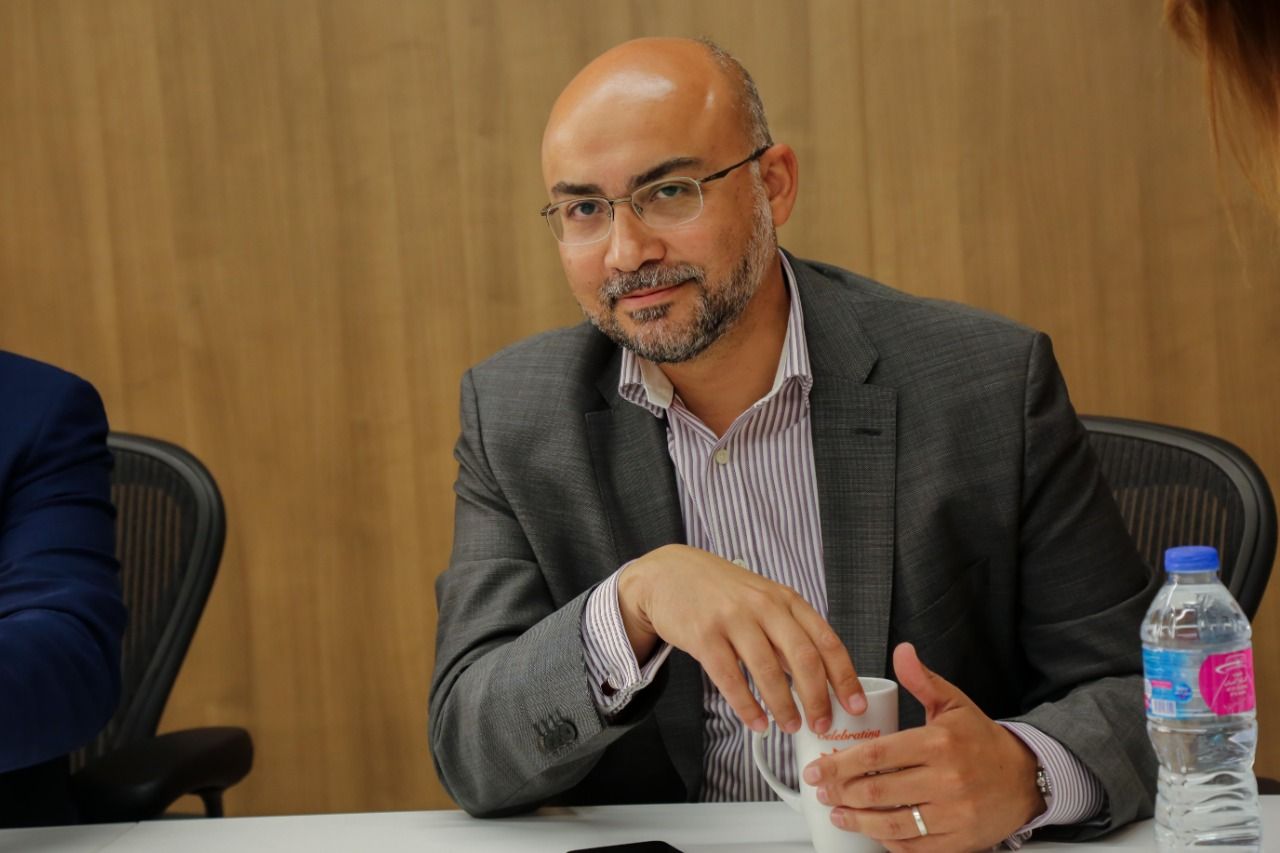In conversation with Mohamed Okasha of Fawry

Financial technology (fintech) has been highlighted as one of the ways to bring banking services to the masses. Across the Middle East and North Africa (Mena) region, a staggering 86 per cent of the population remain unbanked, one of the highest rates in the world.
In 2008, Egypt-based Fawry launched an electronic payment gateway, enabling those without a bank account or credit card to pay for bills online and through ATM machines and dedicated service points. Since then, it has grown to become the country’s largest fintech startup processing more than 2 million transactions daily from its 20 million customers.
In 2015, a consortium of investors acquired an 85 per cent stake for $100 million and the company is now planning to launch an initial public offering (IPO) later this year.
We spoke with Mohamed Okasha, who co-founded Fawry with Ashraf Sabry. Prior to founding Fawry, Okasha worked at Egypt-based financial investment firm Raya and telecoms operator Vodafone.
Did you always want to become an entrepreneur?
None of us were entrepreneurs. We worked in corporates and learned very well from them. Raya was also an emerging company and so there was lots of space to innovate so we learned how to work out of the box. When we started Fawry, we believed that we could do something in that space. We did not name it then as "fintech" but we were passionate about what we wanted to do and we believed in the importance of what we were doing in Egypt.
What were your biggest challenges when you first started?
The fintech industry was new to Egypt and actually, new to the world when we started in 2008. We had lots of challenges to prove the concept. It took us years before people believed it, not only companies and investors but also, consumers. People used to pay their bills through Fawry and then call the call centre to check if the payment was delivered.
Then in 2011, the revolution happened and we spent two or three years investing money in a market that everyone thought was risky. Institutions that invested in us were on our back but we took a brave decision to continue investing without stopping while other companies decided to regress. Fawry did not happen overnight so things like this take time to mature.
How has the sector developed over the past few years?
The industry is now known to an extent and people are starting to read and hear what can be done in that space. We have lots of opportunities to grow and gaps to fill. Our goal was to bridge the gap between the masses and the financial services offered by banks. Things have changed dramatically in the past three years. The government and regulators speak fintech and encourage fintech. Maybe they do not know the way exactly and do not have something solid, but all the dynamics are going in a much more positive way than in the past because it is now sort of mandated on them to find a way to include people in financial inclusion.
What were the key lessons that you learned?
We always had the goal in front of our eyes, we knew for sure we had a problem in financial services and that technology is the only solution. Since we were building a long-term investment and an infrastructure that we were sure was going to benefit the country, we had to have good financing. We had banks and investment funds from day one. We did not need financial support a lot. We only raised capital once and then things started to automatically fund themselves.
When we first talked to banks, they did not really believe in Fawry until they knew that we, as individuals, had previous success in other places and that we deliver and execute what we talk about so the risk was a bit less than putting money with someone they do not know. The energy that the youth put in any startup is very important but once you have an idea, you need to have your own support from people who are more experienced. The idea alone is not enough, and money is not enough.
What are your plans for expansion?
We highly believe in e-commerce so we are investing in that direction. We launched Fawry Pay which is our payment gateway for e-commerce. For example, Jumia , Egyptair, universities and others, want their customers to have different options for payment like Visa, Mastercard, cash or PayPal so they had to make a contract with 5 or 6 institutions. Fawry always depends on consolidation so in one move, they can take all the options. We invest also in mobile technology because we believe mobile payment is going to be the winner in the payments methods offered. We also started looking outside of Egypt too, mainly the GCC, Kuwait, UAE and KSA. We will launch something with one of the biggest banks in the UAE by the end of the year.
What will the fintech industry in the Middle East look like in the next decade?
We have two things that are unique. We are closer to the East than the West. Because the banking penetration is low, we think mobile phones are key. The other thing is that the whole region is going online so that is why we invested in that. I believe these are the two criteria that will govern how fintech will look like in the upcoming period of time.
The fintech industry will boom but its shape will change dramatically. What we think of now as innovation will be a commodity in two years.


